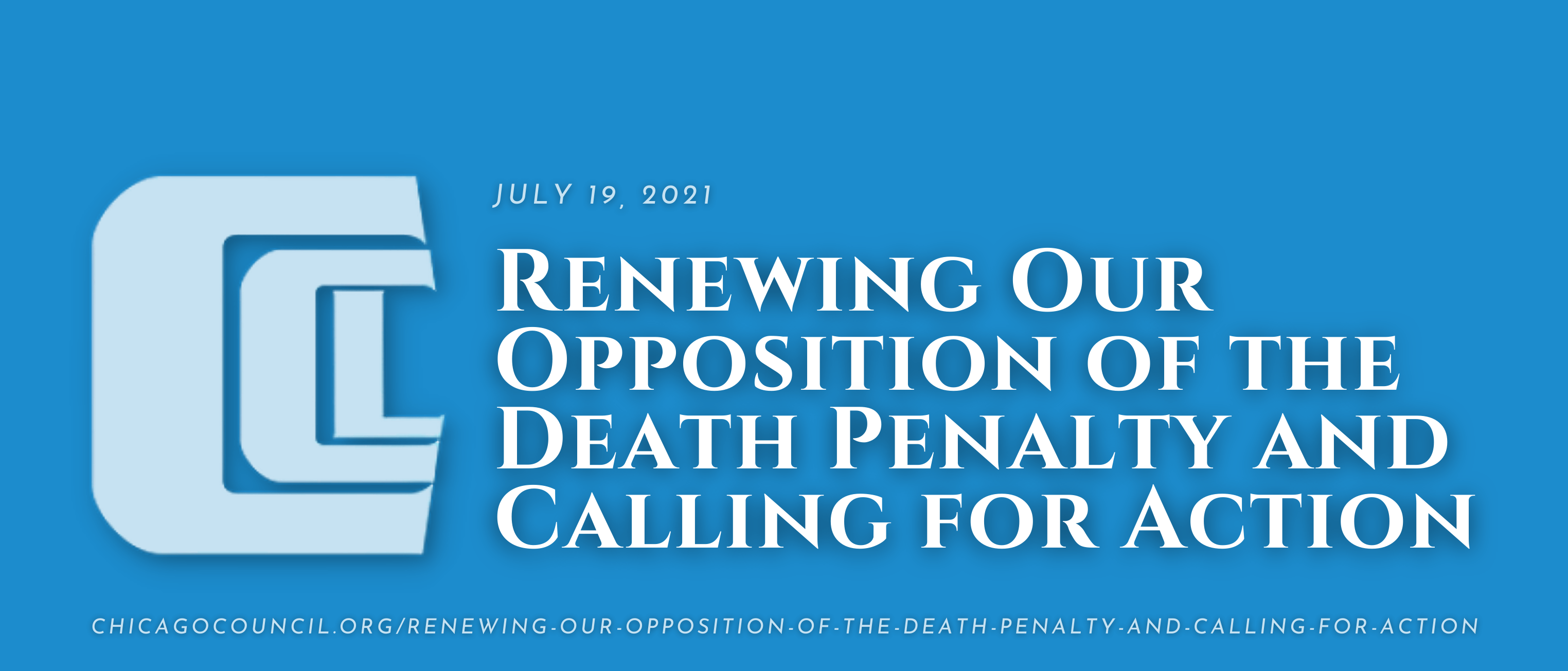Renewing Our Opposition of the Death Penalty and Calling for Action
During Donald Trump’s final seven months in the White House, the US Department of Justice executed 13 people. This followed a 17-year hiatus in federal executions; in the previous 60 years, only four other people had been executed by the federal government. The unseemly haste with which the Trump administration carried out its recent execution spree was enabled by the U.S. Supreme Court’s failure to ensure adequate review of these cases. Trump’s actions shone a spotlight on the harsh inequities and profound procedural failures that are integral features of the federal death penalty.
The federal death penalty is inherently racist and unjust, and there is overwhelming evidence that is not carried out fairly or impartially. As such, the Chicago Council of Lawyers renews our strong opposition to the death penalty and calls on Congress to outlaw the practice.
Over the last several decades, new information has come to light which has made the death penalty increasingly untenable. There is no evidence that it deters crimes and an abundance of evidence that it is carried out in a highly arbitrary, biased manner. Multiple studies have found that the death penalty is disproportionately given to Black defendants convicted of killing white victims. There is also evidence that the juror selection process in capital cases may result in a biased jury. The U.S. Supreme Court has ruled that people who are opposed to the death penalty can be excluded from the jury; research has shown that the juries that result are more likely to find the defendant guilty and more likely to come to conclusions about punishment before the sentencing phase of the trial.
For years, the death penalty has been falling out of public favor. Sixty percent of Americans now say that life in prison is a better punishment for murder than the death penalty. As a result of the exoneration movement, we now know that sentencing innocent people to death is shockingly common. Since 1973, for every ten people who have been executed, one person has been exonerated of all charges related to the wrongful convictions that put them on death row. A total of 185 death row prisoners have been exonerated and released, a number that continues to grow. Twenty-three states now outlaw the death penalty outright and another three states have declared a moratorium on the practice. Even the states that allow the death penalty are using it much less frequently; seventeen states with the death penalty on the books have not carried out an execution in at least five years.
Nevertheless, the fact that a majority of states have outlawed or are refraining from implementing the death penalty did not prevent the Trump administration from resuming federal executions. President Biden opposes the death penalty and pledged to eliminate it during his 2020 presidential campaign. While we applaud the recent decision by the Biden administration to impose a moratorium on federal executions, we are troubled that Biden’s Justice Department has asked the U.S. Supreme Court to reinstate the Boston Marathon bomber’s death sentence.
Today, the federal death penalty can be imposed for a variety of federal crimes ranging from murder to espionage, large-scale drug trafficking, and the attempted murder of a witness, juror, or court officer. Currently, there are 46 federal prisoners on death row, and their cases illustrate the deeply troubling fairness and due process issues that characterize the implementation death penalty.
We call on President Biden to make good on his campaign promise by commuting the 46 remaining federal death sentences to life in prison and directing the Justice Department to instruct every U.S. attorney in the country not to pursue capital charges for federal crimes. We also urge the President, the U.S. Senate, and the U.S. House of Representatives to put an end to federal capital punishment for good by passing the Federal Death Penalty Abolition Act.
The federal death penalty has been geographically concentrated and disproportionately meted out to people of color. Nearly half of federal death row cases are from four states (Texas, Virginia, Missouri, and South Carolina) and well over half of death row prisoners are men of color. Many suffer from significant impairments such as severe mental illness, intellectual disabilities, and histories of trauma and abuse. A 2020 analysis by the Death Penalty Information Center found that “more than 85% of those facing federal execution have at least one serious impairment that significantly reduces their culpability, and 63% had two or more of these impairments.” That same analysis found that 42% of death row prisoners committed their crimes when they were age 25 or younger. This is especially significant because neuroscience research has shown that the regions of the brain responsible for rational judgment and impulse control are not fully developed until a person is in their mid-20s or later.
It is long past time for the United States to join the more than 70% of the world’s countries that have banned capital punishment in law or practice. To paraphrase Justice Harry Blackmun, we must no longer tinker with the machinery of death.

